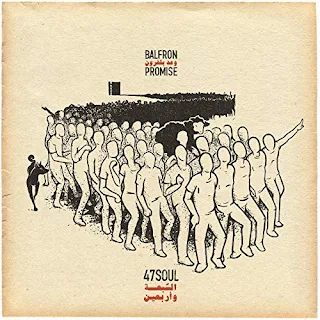About 93% of Palestinians are Muslim, of the Sunni orthodox sect, and about 6% are Christian, and a very small number are Samaritans, adherents of an early form of Judaism who live around Nablus in the West Bank. In the Occupied Territories, Palestinian Christians now constitute about 3% of the population.
The majority of Palestinian Christians are Greek Orthodox, with smaller
numbers of Roman Catholics, Armenian Orthodox, Copts, Episcopalians,
Ethiopian Orthodox, Greek Catholics, Lutherans, Maronites, Syrian
Orthodox, and several other Protestant denominations.
There are no official figures on the number of Palestinian Christians in
the occupied territories, but according to the Lutheran ecumenical
institution the Diyar Consortium there are 51,710 Christians in the West
Bank, Gaza, and East Jerusalem. They are concentrated mainly in East
Jerusalem, Bethlehem, Ramallah, and Nablus. Christians comprise roughly 2% of the population of the West Bank, while Gaza's estimated 3,000
Christians account for less than 1% of the coastal enclave's
population. The number of Christians in the occupied territories has
continued to dwindle as many emigrate as a result of the difficulties of
living under Israeli military occupation
Christians living in Gaza are a mere 73 km (45 miles) from Bethlehem,
but for most of them it is impossible to celebrate Christmas in the
place where Jesus was born. Bethlehem is surrounded on three sides by Israel's West Bank Wall, which has been deemed illegal by the International Court of Justice. In and around Bethlehem there are some 32 physical barriers to
Palestinian movement erected by Israel, including checkpoints,
roadblocks, dirt mounds, and gates. It continues to be a city under seige. It continues to be a city where 25,000 Palestinians experience apartheid on a daily basis.
An international organization concerned with defending the rights of Christians in the Middle East and Northern Africa on Saturday said that Israel has not issued permits to Christians in Gaza to visit the West Bank, especially Bethlehem, during the Christmas holiday.
The organization Middle East Concern (MEC)
https://www.meconcern.org/ issued a statement saying that Gaza Christians have not been given the necessary permits to enter the West Bank to participate in the Christmas celebrations or visit their relatives."
Christians in Gaza request prayer that permits will be granted to travel to the West Bank to visit friends and relative over the Christmas holidays. " said MEC. which describes itself as "defending the religious freedom of Christians." All inhabitants of Gaza one of the most densely populated places on Earth, face severe travel restrictions and have difficulty obtaining permits from the Israeli authorities to enter Israel through the Erez border crossing," it said. "In previous years. Christians lining in Gaza were privileged to be able to apply through the Greek Orthodox Patriarchate in Jerusalem to receive travel permits from Israel to visit family and friends in the West Bank over the Christmas period. This year however nearly all the Christmas permit applications have been reused by the Israeli authorities, with only Christians over the age of fifty-five being allowed to travel."
The restrictions means most of nearly 1000 Christians who still live in Gaza will not be able to travel as a family to the holy places in the West Bank since young people cannot join their elderly parents on this trip. The statement strongly denounced the Israeli measures preventing Gaza Christians from practicing their religious freedom.
In the occupied territories, Palestinian Christians suffer from the same discriminatory regime and restrictions, including on movement, applied to all Palestinians
living under Israel's military rule and occupation. These
restrictions do not apply to the more than 500,000 Jewish settlers
living in illegal settlements in the occupied territories.
Since 1993, Palestinians living in the occupied West Bank and Gaza have
been forbidden by Israel to enter occupied East Jerusalem without a
difficult-to-obtain permit. As a result, millions of Christian and
Muslim Palestinians living in the West Bank and Gaza are prevented from
accessing their holy sites in Jerusalem's Old City, which contains some
of the holiest sites in Christianity and Islam, including the Church of
the Holy Sepulchre and the Noble Sanctuary mosque complex.
Although Israeli officials boast that Christian and Muslim Palestinians
have free access to their holy sites in occupied East Jerusalem and
other areas under Israeli control, in reality Israeli restrictions on
Palestinian movement make it difficult or impossible for most
Palestinians in the occupied territories to worship freely.
Since 1967, Israel has illegally occupied what is
internationally known as the Occupied Palestinian Territory, including
Occupied East Jerusalem. This is not a matter of opinion but a matter of
fact according to international law. Repeated UN Security Council
Resolutions (including 242, 252 and 476) have called on Israel to
withdraw its forces from territories occupied in 1967, and regard any
actions taken to change the character and status of Jerusalem as
invalid.
These actions include
both the physical, and illegal, annexation of the city to the State of
Israel and the maintenance of a significant Jewish majority, through
such measures as the construction of the illegal Wall, the revocation of
residency rights, demolition of houses and denial of building permits
for Palestinians Jerusalemites, in flagrant disregard of international
law.
In Jewish and Biblical history, Jerusalem was the capital of the
Kingdom of Israel during the reign of King David. It is also home to the
Temple Mount, and the Western Wall, both highly sanctified sites in
Judaism. In Islamic history, the city was the first Muslim Qiblah (the
direction which Muslims face during their prayer). It is also the place
where Prophet Muhammad’s Isra’ and Mi'raj (bringing forward and
ascension to heaven, also called the night journey) ensued according to
the Qur’an.
Al-Aqsa Mosque in East Jerusalem is regarded in Islam is considered the third holiest site in Islam and an important place
for offering prayers.
Thus the sanctity of Jerusalem resonates among many Muslims around the world, not just Palestinians Since 2005, Palestinians from the Gaza Strip and
the West Bank have been denied access to the mosque by Israel’s forces
under the pretext of security reasons. This amounts to denying
Palestinians the freedom to manifest their religion or belief in
practice, thus violating a fundamental aspect of the right to freedom of
religion.
Israel’s policy of preventing certain groups of Muslims from reaching al-Aqsa dates back to the beginning of the occupation, the irony in this is that foreigners from all over the world can visit
the site but Palestinians are not allowed to visit. This is clearly
oppression and a violation of the freedom of religion and the right to
worship
The fact of the
matter is that Occupied East Jerusalem remains the socio-economic,
cultural and spiritual heart of Palestine: there can be no viable,
independent State of Palestine without it. It is an illegally occupied
area and the capital of the Palestinian State. Therefore, the very idea
that any Palestinian should need a permit to visit the city at any time
of year, for any reason, is simply absurd.
As long as Israel persists in its illegal occupation of East Jerusalem
and the rest of the Palestinian Territory occupied in 1967, the
Palestinians have little choice but to accept the permit system.
Rights are symmetrical. Freedom of all religious practices should be
respected and treated equally. Whether it is the rights of Muslims or Christians being violated, all of it should be put to an immediate end. The right of freedom of religion or belief is enshrined in Article 18
of the International Covenant on Civil and Political Rights and has
been reaffirmed by the Declaration on the Elimination of All Forms of
Intolerance and of Discrimination Based on Religion or Belief, which was
approved by the General Assembly of the United Nations in 1981.This
fundamental right is also protected by several instruments of
international law, including Article 18 of the 1948 Universal
Declaration of Human Rights, which states that: “Everyone has the right
to freedom of thought, conscience and religion; this right includes
freedom, either alone or in community with others and in public or
private, to manifest his religion or belief in teaching, practice,
worship and observance.”
As Christmas approaches and we celebrate, please remember the people of Palestine and their struggle, and remember that despite Israel's occupation and apartheid regime , despite restrictions on their freedom of movement , their freedom of worship, as part of the international community we must insist that Israel end its occupation and accept that it has no right to obstruct
Palestinian access to any part of their occupied homeland. Let us stand with them in their fight for dignity, human rights and self-determination.

































